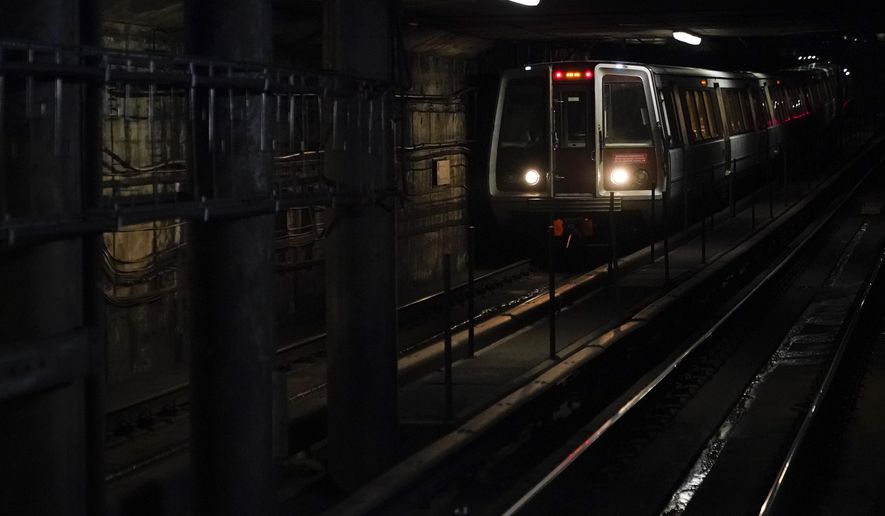The National Transportation Safety Board on Wednesday issued a safety alert to rail transit agencies nationwide to check their fleets for a wheelset problem that caused a Metro train in the District to derail earlier this year.
The board asked agencies to check wheelsets that do not meet gauge specifications and to take immediate action to remedy the issue, noting certain Metro rail cars shifted outward from their proper position on their axles.
“The Safety Alert identifies the issue of wheelset movement on transit railcars and commuter railroads as a serious problem that has the potential to create a catastrophic event,” said Robert Hall, director of the NTSB’s Office of Railroad, Pipeline and Hazardous Materials Investigations. “As we continue to conduct the investigation of this derailment, it is imperative that the safety issues identified are addressed immediately to protect the American public traveling daily on our transit system.”
The NTSB said the wheelset problem is “not easily identifiable” with a routine visual inspection, adding other transit and commuter rail cars could have the flaw. The board, therefore, urged transit agencies to follow federal guidelines to conduct inspections for misaligned wheels.
The board is still investigating the Oct. 12 derailment of a Blue Line train that had 187 passengers on board. The train derailed between Rosslyn and Arlington Cemetery stations, causing one passenger to be sent to the hospital for treatment.
The train had departed the Rosslyn station when a wheelset on the fourth car of the Metro train, car 7200, derailed, according to a preliminary report released Wednesday by NTSB investigators. The train traveled about 1,800 feet after the derailment before coming to a stop in the tunnel. The train had been traveling at about 33 mph at the time of the derailment.
According to NTSB’s report, the car derailed and then reconnected with the rails two times during that trip before the final derailment. The NTSB discovered that the wheels on Metro’s 7000-series railcars spread too far apart on the axles, an ongoing problem since 2017.
Following the derailment, about 60% of Metro’s 7000-series railcars, which were the ones with the faulty wheel assemblies, were taken out of service in mid-October. The transit agency expects reduced rail service at least through the end of the year.
Metro said it has not set a deadline to return all of its 7000-series railcars to service and is waiting for parts for the older 6000-series railcars due to global supply chain challenges. To get the railcars back on the tracks, Metro must test to confirm that the new inspection intervals are enough to safely return the trains to passenger service. Last month, Metro said the testing was ongoing.
The transit agency has been adding older railcars to help fill the gaps in service left by removing hundreds of 7000-series railcars.
Metro discovered 20 axles to be out of alignment after inspecting all of its 7000-series railcars.
• Shen Wu Tan can be reached at stan@washingtontimes.com.




Please read our comment policy before commenting.